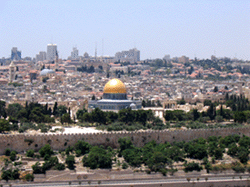
Month: October 2005


The Iraq War: Planting the Seeds of Al Qaeda’s Second Generation
The American-led invasion and occupation of Iraq has provided Al Qaeda with a new lease on life, a second generation of recruits and fighters, and a powerful outlet to expand its ideological outreach activities to Muslims worldwide. Statements by Al Qaeda top chiefs, including bin Laden, Zawahiri, Zarqawi, and Seif al-Adl, portray the unfolding confrontation in Iraq as a "golden and unique opportunity" for the global jihad movement to engage and defeat the United States and spread the conflict into neighboring Arab states in Syria, Lebanon and the Palestine-Israeli theater. The global war is not going well for bin Laden, and Iraq enabled him to convince his jihadist followers that Al Qaeda is still alive and kicking despite suffering crippling operational setbacks in Afghanistan, Pakistan, Saudi Arabia, Yemen and elsewhere.
.gif)
AIDS, Orphans and Grannies in Thailand

UN to tackle Internet governance
The European decision to back the rest of the world in demanding the creation of a new international body to govern the Internet caught the

Iran pipeline sparks nuclear deal
SAKHALIN, Russia – Gazprom, the world’s largest gas firm, is eager to participate in the construction of a $7.4 billion Iran-Pakistan-India pipeline that would bring gas from the gigantic South Pars fields in Iran to the two South Asian countries, the Press Trust of India reports.
The Russian energy giant has previously held talks with authorities in

Darfur crimes could go to international court
In one recent incident, pro-government Arab militias at a refugee camp reportedly killed 34 people. According to the BBC, the attackers are believed to be Janjaweed Arab militiamen, described as criminals by the Sudanese government. The government called it the first direct assault on a refugee camp since the conflict began more than two years ago.
